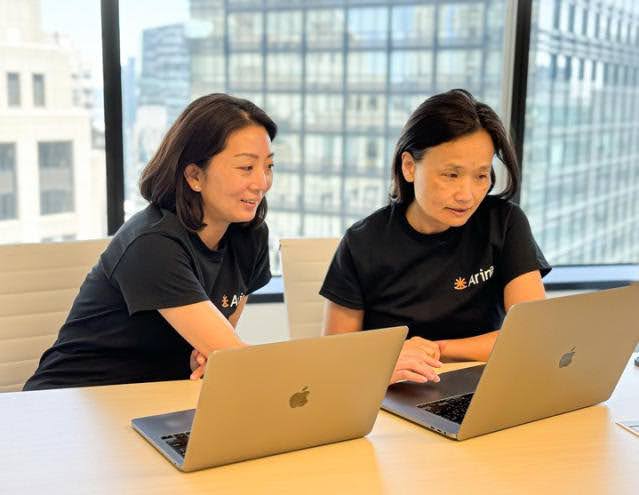March 13, 2025 5:30 am ET |WSJ PRO

Venture capitalists in recent years have funded dozens of startups seeking to improve care for the millions of Americans on Medicaid.
Now these startups are at a crossroads: some are devising survival strategies as the health-insurance program faces spending cuts, while others may benefit from increased demand for technology that helps medical organizations quickly reduce costs.
The House budget blueprint doesn’t mention Medicaid cuts. But it directs the committee overseeing Medicaid to cut spending by $880 billion over 10 years. Investors, startups and executives are preparing in case Medicaid reductions are significant.
“If we simply pull money out of the system writ large, there is going to be less room for everything, including innovation,” said Bill Evans, founder and general partner of Rock Health Capital.
Uncertainty about Medicaid—which serves one in five Americans, including children and people with low incomes or disabilities—encourages organizations to invest more selectively in technology and to favor tools that pay off quickly, said Dan Savitt, president and chief executive of VNS Health, a New York-based healthcare provider and health insurer.
Technologies targeting administrative costs generate faster returns on investment than those for patient care, where the greatest need lies, he said.
“You have to be more selective and slow down the investments that impact clinical quality and member engagement and patient engagement,” Savitt added.
Options for cutting Medicaid include creating more-stringent eligibility requirements. As the complexity of Medicaid requirements increases, individuals will grow more reliant on services to help them navigate the landscape of paperwork and requirements to get access to coverage and care, said Julie Yoo, a general partner with Andreessen Horowitz.
Improving efficiency
New York-based Fortuna Health, whose investors include Andreessen Horowitz, seeks to simplify Medicaid enrollments and renewals for people through technology that quickly screens for Medicaid eligibility. Because there are various ways to qualify, some people are eligible for Medicaid and don’t realize it, according to co-founder and CEO Nikita Singareddy. Fortuna can help hospital clients lower the number of uninsured patients they care for and improve member retention for health-insurance customers, she said.
She talks with clients regularly about how they can adapt their resources, programming and technology to shifts in Medicaid.
“Many organizations are seeing us as a thought partner,” she added.
Arine co-founder and CEO Yoona Kim, left, and Penjit “Boom” Moorhead, co-founder and chief technology officer. Photo: Jeremy Klein
Yoona Kim, co-founder and CEO of San Francisco-based Arine, said her company is well-positioned for today’s cost-cutting climate. Arine’s technology helps patients use their medication more effectively by identifying those who may benefit from an adjustment, reducing expenses stemming from the suboptimal use of medicines.
About 25% of Arine’s business is in Medicaid, Kim said, adding that most of the company’s contracts include a pay-for-performance aspect.
“Our ability to deliver savings to the system while improving patient care is what we’re going to continue to focus on,” she said. “With this new administration, that’s even more important to do.”
Unintended consequences
Boston-based Eleos Health, which recently closed a $60 million venture financing, uses artificial intelligence to reduce administrative work for community behavioral-health centers, which predominantly serve Medicaid beneficiaries.
Medicaid cuts could spur further technology adoption, but they also could drive some clinicians out of Medicaid and into private practices, Eleos Health co-founder and CEO Alon Joffe said.
“It’s another risk that we have with these potential cuts,” he added.
Los Angeles-based Wellth, founded in 2014, helps insurers reward beneficiaries for adhering to their care plan. About 40% of its business serves Medicaid or people who qualify for both Medicaid and Medicare, said co-founder and CEO Matthew Loper.
Reduced Medicaid spending could make it harder for insurers to invest in services such as his, so he is exploring funding alternatives.
One possibility is pay-for-success models in which third-party investors fund programs such as Wellth’s and earn a return if the initiatives succeed, he said.
He and other entrepreneurs said cuts that reduce access to Medicaid would drive more patients into emergency rooms, where care is particularly expensive.
“My fear is these cuts can create a lot of downstream unintended consequences that create a more costly, more complex system, not a better one,” Loper added.
Tulsa, Okla.-based startup Pear Suite has created a technology platform to help community organizations assist people with social needs affecting their health, such as transportation to doctors’ appointments, and to bill Medicaid and Medicare for their services. Health insurers also use it to contract with these groups and facilitate referrals for their members to community services, said co-founder and CEO Colby Takeda.
One customer, MECA Therapies, a pediatric therapy and family services company in New Mexico, is using Pear Suite’s platform for a new maternal-health initiative. Technology that improves efficiency can be part of the solution to dealing with Medicaid reductions, said MECA co-founder and CEO Jeff Flores.
“In light of the Medicaid cuts, this is exactly why leveraging technology and AI has to be part of the road map moving forward in the healthtech space,” he said.




